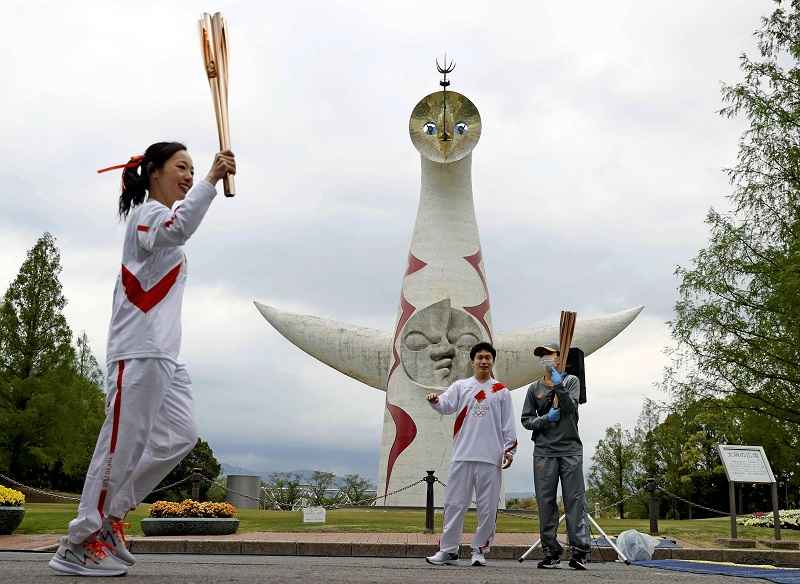
Aya Terakawa, an Olympic bronze medalist in the backstroke, rans by the Tower of the Sun during a torch relay held without spectators at the Expo’70 Commemorative Park in Suita, Osaka Prefecture, on April 13.
19:47 JST, April 24, 2021
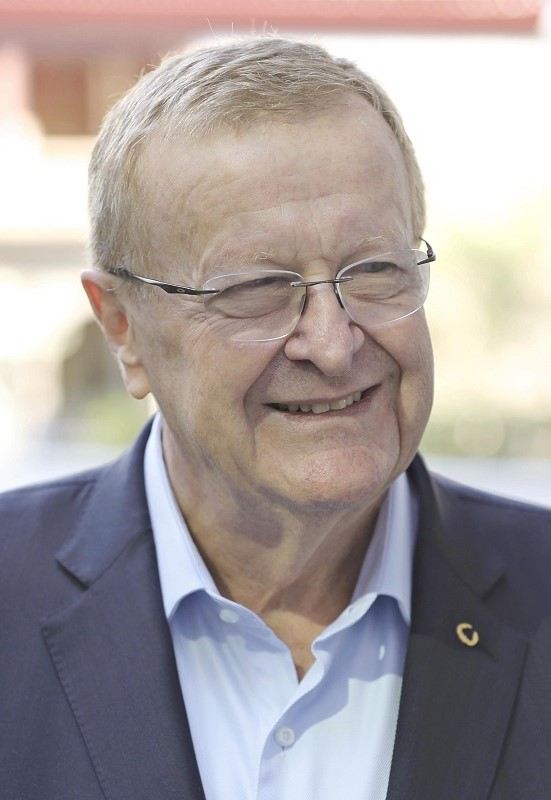
International Olympic Committee Vice President John Coates
The Tokyo Olympic Games will commence in fewer than 100 days, followed by the Paralympics.
Even while the torch relay and last-stage preparations are underway, the COVID-19 pandemic continues to pose considerable difficulties.
International Olympic Committee (IOC) Vice President John Coates, who also chairs the Coordination Commission for the Tokyo Games and serves as president of the Australian Olympic Committee, discussed the situation in an online interview with Yomiuri Shimbun Senior Writer Wakako Yuki on April 13.
***
The Yomiuri Shimbun (Q): With 100 days to go before the opening ceremony, what are your observations?
Coates (A): Reaching this milestone reflects massive efforts by a lot of people, from two governments in Japan [the central government and the Tokyo metropolitan government], from the organizing committee, and the athletes. We have been fortified in our belief that the Games can take place by the fact that these are the best-prepared Games ever. They were the best-prepared Games for the original date, and I just cannot imagine any other country than Japan would have been able to continue with detailed preparations necessary to make these a safe Games. We are now entering operational planning and I am very excited.
These Games have much greater significance because of the pandemic. It is a victory of humankind to achieve, to host something in this unprecedented adversity. I think this is one of the greatest challenges we ever faced, for the Olympics to take place, for athletes to fulfill their dreams. When athletes arrive, after not an easy preparation, I think these Games can be a very, very special celebration for all of us.
Q: The torch relay has started, but the impact of the pandemic is ongoing. The leg in Osaka that marked 100 days to the Games had to be held without spectators.
A: It is wonderful to see people cheering and rallying, to see the joy on their faces. We can be flexible with the arrangements. Flexibility is the way of the Games. The important thing is that the torch relay continues. Consider its symbolism when we do get to the main stadium.
Q: Seiko Hashimoto assumed the presidency of the organizing committee after gender inequality in society attracted public attention, and she now hopes to make public opinion more positive so that the athletes are free to prepare for the Games wholeheartedly.
A: We are seeing initiatives and hope they will improve the position of women in society, as the legacy of the Olympics. And we hope public opinion will improve as we are on the eve of the Games. I think it helps that everyone is now seeing qualifications, closely following the preparation of athletes, such as the swimmer [Rikako Ikee] who overcame leukemia. I think stories of the athletes as they come through, how they are managing and qualifying, surely would have big impacts on the population.
Q: You have agreed to the decision to hold the Games without overseas visitors. This means athletes’ families are also being affected.
A: It was not what we wanted. But when your government and OCOG [Organising Committee for the Olympic Games] came to us and said, “To make the Games safe, we have to do this,” the IOC and the IPC [International Paralympic Committee] quickly understood and worked with it. This is another measure to ensure the safety of the Japanese public and all the participants of the Games.
People affected were disappointed but are being pragmatic. When I spoke with the mother of one of our [Australian] swimmers, she said she would try to have families of swimmers meet elsewhere in Australia, watch the Games and celebrate together. Athletes also understood, saying the most important thing is the opportunity to compete in the Olympic Games.
Q: What about the policy to limit the number of spectators at stadiums?
A: If it is the decision to restrict numbers, then I think we should leave flexibility there to boost the number again later, if we have vaccinations become more prevalent and become confident on safety, as spectator support is an important element for the athletes in the Games.
Q: The “playbook” of anti-coronavirus measures for participants will be revised. What can you say about the testing policy for athletes?
A: The IOC and the Games organizing committee will continue to rely on the best medical advice. Maybe they have to be tested more regularly — every two days, every day. We may look into the type of sport, such as the difference between two wrestlers [whose sport requires contact] and two shooters on well-separated lanes.
Q: Test events are also affected by COVID-19, with some being postponed or relocated.
A: We know some test events moved to May; that is good. Some qualification events were rescheduled elsewhere, but are still taking place.
Q: North Korea said it will not participate in the Tokyo Games due to COVID-19 safety concerns. Are you concerned that any other government or National Olympic Committee (NOC) may follow suit?
A: We have been working hard to speak to the North Korean NOC in vain. The Olympic Charter states that there is an obligation for NOCs to participate in the Games.
I do not anticipate other countries will follow suit. I do not think any NOC has expressed views that the IOC and the organizing committee in Japan are not doing everything possible to make these safe Games for their participants.
Q: Amid strict anti-coronavirus measures, the Tokyo Games will be quite different from the Olympic Games we know. Diminished public enthusiasm may negatively affect the Games’ legacy. What do you see as the significance of the Tokyo Games?
A: These Games have probably more significance than previous Olympics.
For athletes, they had to put up with people saying, “Oh, the Games are not going to happen.” They put up [with that] and continued to do the hard work. [The situation] should be the same for all athletes, so they really deserve this victory, just getting on the starting line at the Games.
I think there is going to be more interest in these Games, as the consequence of what we have been through, and as people understand the difficulty of managing to have these Games in adversity. And these athletes will be forever remembered as the ones who competed in the Games during the pandemic. For your personal struggles, you’ll be special athletes if you’ve gone to Tokyo, and you will be remembered as such.
The significance comes back to the victory of humankind. Achieving something in the massive adversity.
Q: What have COVID-19 and the Tokyo Games experience taught us so far?
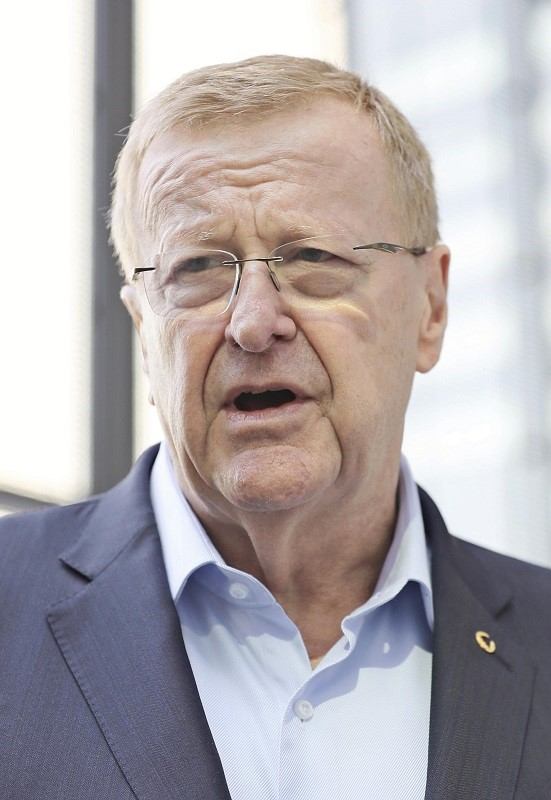
John Coates
A: The unpredictability of life hits home. During your pain or sorrow, the best way to overcome these can be finding joyful experiences. Last year, we were down to no sport, and when it came back, our lives were fulfilled. It gave me more purpose. Sport is an integral part of us, and I appreciate it more than ever now. The experience made us think about what is essential to sport, what the Olympic movement has to offer.
I think these Games have brought us back to the basics, what is really important. What is the absolute essential for the Games? It is the opportunity for the athletes to perform at their best. And the opportunity to mix with people around the world without discrimination. All of those would give us the opportunity to reflect on the Olympic values, why we are here. Lots of other stuff are just accessories.
Sometimes in history it is good to stop to work out what really is the purpose of what we are doing. I think these realizations would be something to stay with us as we are stepping into the future.
Coates, 70, is a lawyer from Australia who, in addition to his IOC post, also serves as chair of the Coordination Commission for the Tokyo Games, president of the Australian Olympic Committee, and president of the International Council of Arbitration for Sport (ICAS).
Top Articles in Sports
-
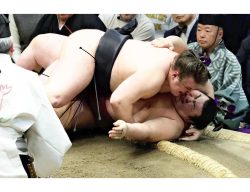
Aonishiki Tops Atamifuji in Playoff to Win New Year Grand Sumo Tournament in Ozeki Debut
-

Milano Cortina 2026: Figure Skaters Riku Miura, Ryuichi Kihara Pair Win Gold; Dramatic Comeback from 5th Place in SP
-

Milano Cortina 2026: Kokomo Murase Comes Out on Top After Overcoming Obstacles, Aiming for Greater Heights in Competition
-
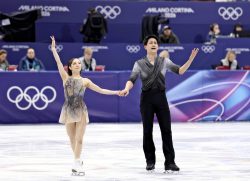
Milano Cortina 2026: Riku Miura, Ryuichi Kihara Clinch Japan’s 1st Gold in Pairs Figure Skating, Rebounding from Disappointing Short Program
-

Milano Cortina 2026: Olympics-Torch Arrives in Co-Host Cortina on Anniversary of 1956 Games
JN ACCESS RANKING
-

Japan PM Takaichi’s Cabinet Resigns en Masse
-

Japan Institute to Use Domestic Commercial Optical Lattice Clock to Set Japan Standard Time
-

Israeli Ambassador to Japan Speaks about Japan’s Role in the Reconstruction of Gaza
-

Man Infected with Measles Reportedly Dined at Restaurant in Tokyo Station
-

Videos Plagiarized, Reposted with False Subtitles Claiming ‘Ryukyu Belongs to China’; Anti-China False Information Also Posted in Japan






















